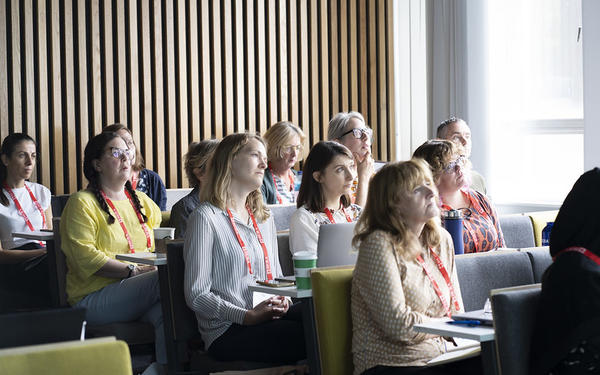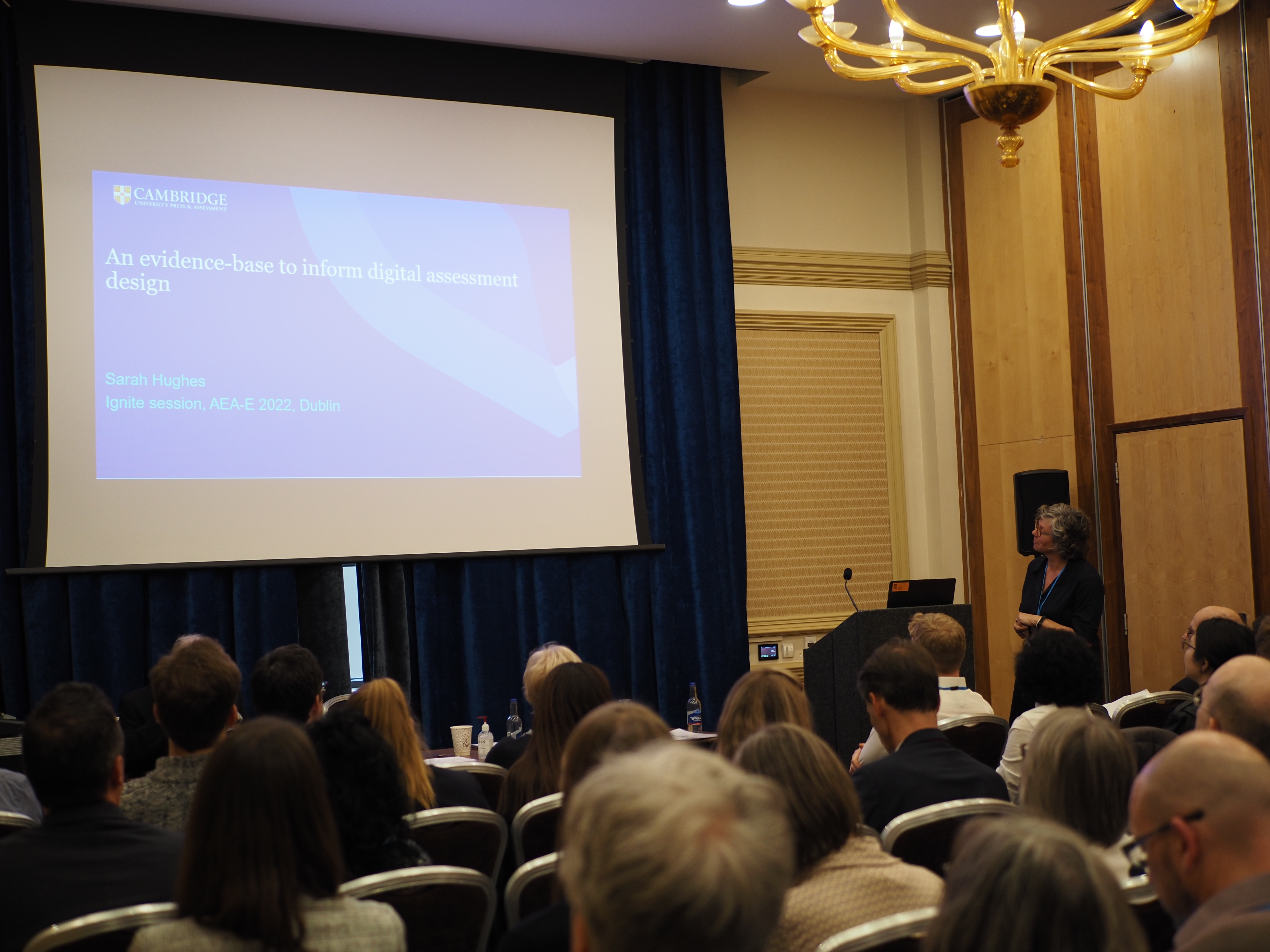News and Events
Improving education: research highlights from 2022
Cambridge's Research Division conducts cutting-edge research to inform our products, services and thought leadership. Here we look back at highlights from this past year when the research community benefitted from being re-united.

2022 was the year when things started to get back to normal for our researchers in terms of in-person attendance at conferences which had moved online during the pandemic. Lots of our researchers reported enjoying both the professional and social side of being able to meet fellow researchers from different education and assessment communities - learning from their work and sharing our own. The change of mindset associated with specifically gathering for a shared purpose is really beneficial - from the intangible quality of 'the atmosphere in the room' to the more obvious advantage of being able to seek people out for a quick chat over coffee.
At the first in-person conference of the Association for Educational Assessment (AEA-Europe) since 2019, a key place to disseminate our research and keep up to date with the latest research in the field, our presentations in Dublin included topics such as creativity in examination question writing, teacher assessment literacy, online moderation of non-exam assessment, and making decisions in comparative judgement.

Presenting at AEA-Europe 2022
Recognition
Research isn't a competitive sport but it's always nice to be recognised - so we were delighted that researcher Martin Johnson's paper on teacher workload and wellbeing during lockdown won an award for the best paper in the research methods special interest group at the annual conference of the British Educational Research Association (BERA) in Liverpool. BERA was also held in-person for the first time in three years.

As well as sharing our work at conferences, we do so via many other routes. The first issue of our biannual in-house journal Research Matters in 2022 was a special issue on the topic of comparative judgement (an alternative to traditional marking). This is an area where our researchers have for many years been leading contributors to the field. Another key topic where we've contributed a further wave of research in 2022 is Covid learning loss. Our Research Director, Tim Oates, was one of three international experts recently featured in the Times Educational Supplement (TES) highlighting the "significant variation in impact" caused by the pandemic.
We also publish longer pieces of work as research reports on our website; recent examples include reviews of factors affecting success in proofreading on screen versus on paper, progression to post-16 study of the 2020 pandemic-hit exam cohort, and a register of the many changes to the education system in England since 2000. For those who haven't the time to read lengthy reports, we produce blogs - sometimes commenting on general areas of interest such as comparability and maths education, at others focusing on specific problems such as shifting maths and science assessments from paper to screen.
Digital assessment
Digital assessment in general has been a particular focus this year. In November, we were joined by hundreds of assessment professionals from around the world at a hybrid online and in-person event to discuss and share progress on developing research-informed digital assessments.

We also like to learn from experts in different areas of social research so we can make sure our toolkit of research methods is up-to-date. This year, we've invited speakers to talk to us on topics ranging from ethnomethodology (the study of people's methods for making sense of the world) to facial expression analysis.
Looking ahead
Next year, we're looking forward to carrying out and sharing research, both online and in-person, on a host of key topics; new learning and assessment models; education systems and design; curriculum; education systems; applications of computational psychometrics to learning and assessment; assessing knowledge in real life contexts; education policies and learner progression.
If you would like to subscribe to Research Matters or any of our newsletters, click here.
